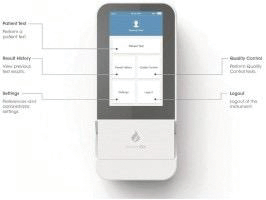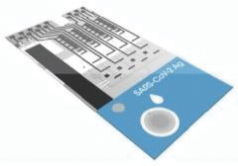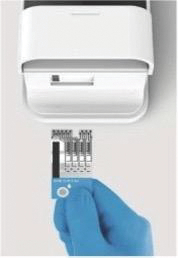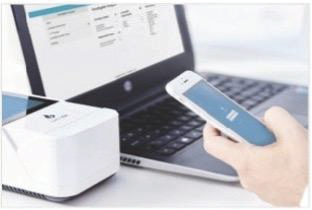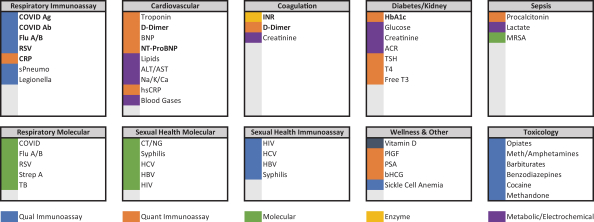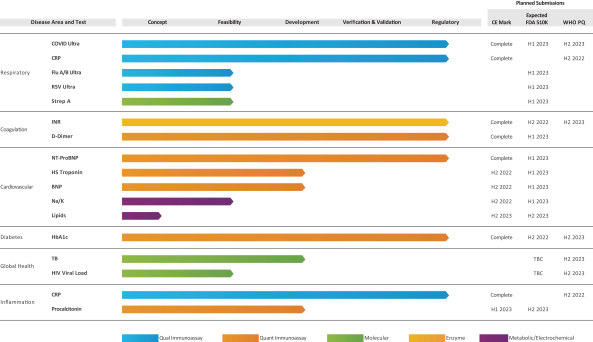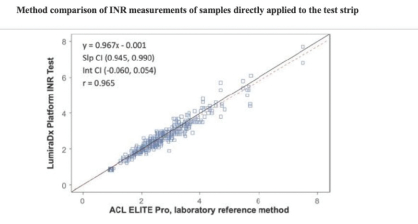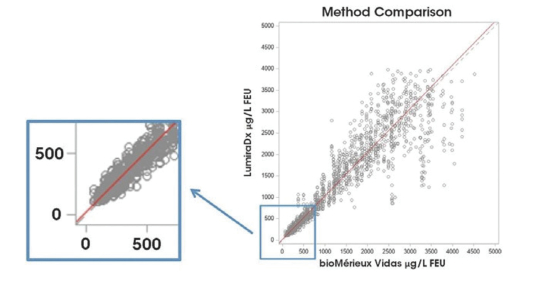We own at least five families of patent applications, at different stages of filing and prosecution, directed to our Platform technologies, that seek to protect various aspects of our Instrument, test strips, and other technologies generally applicable to our various strip assays. The first patent family has a granted U.S. patent, two granted European patents (each of which has been validated at least in the U.K., Germany, France, Ireland, and Italy), and granted patents in Argentina, China, Hong Kong, Japan, Russia, and South African, and applications pending in the U.S., Canada, Mexico, and a number of countries in Asia. The claims in this patent family are directed to various aspects of our Instrument and test strips. The term of the validated patents in the U.K., Germany, France, and Italy and the granted patents in the Argentina, China, Hong Kong, Japan, Russia, South Africa, and the U.S. will expire, and the term of any patents granted on the pending applications would expire, in 2037, in each case subject to the timely payment of the requisite annuities or other renewal fees. A second patent family contains a U.S. application, and regional or national applications in Canada, China, Europe and Japan that contain claims directed to certain aspects of the magnetic capture technologies implemented in our Instrument. The terms of any patents resulting from such regional or national stage applications would expire in 2039, in each case subject to the timely payment of the requisite annuities or other renewal fees. A third patent family contains pending PCT, Taiwanese and U.S. patent applications directed to additional features of our Instrument and test strip technologies, including specific embodiments of our SARS-CoV-2 tests. We expect to pursue one or more regional or national stage applications based on this PCT application. The terms of any patents resulting from such regional or national stage applications would expire in 2041, in each case subject to the timely payment of the requisite annuities or other renewal fees. A fourth patent family directed to our STAR nucleic acid amplification system has a granted European patent (validated in the U.K., Germany, Ireland, France, Italy, Spain and the Netherlands) which is under opposition, and granted patents in Hong Kong, Japan, Korea, Taiwan and Russia and pending applications in the U.S., other North American countries, Argentina, Australia, Brazil, and countries in Asia. The term of the validated patents in the U.K., Germany, Italy, Spain, Ireland, and the Netherlands and the patents in Hong Kong, Japan, Korea, Taiwan and Russia will expire, and the term of any patents granted from the pending patent applications would expire, in 2037, in each case subject to the timely payment of the requisite annuities or other renewal fees. A fifth patent family directed to our qSTAR nucleic acid amplification system has a granted patent in Europe (validated in Germany, France, Ireland, Italy, Spain, Switzerland and the U.K.), granted patents in Hong Kong and South Africa, and patent applications pending in the U.S., Canada, South America, Australia, and countries in Asia. The term of any patents granted from these applications would expire in 2039, in each case subject to the timely payment of the requisite annuities or other renewal fees. We plan to seek patent protection for other aspects of our Platform technologies as they are developed.
With regard to our clinical assays, we have applied for and, if available, will continue to apply for, patent protection for the assays that will be implemented on our Platform. We have a sixth patent family directed to our PT/INR test containing pending patent applications in Canada, China, Europe, Japan, and the U.S., and the terms of any patents resulting from these applications would expire in 2039, in each case subject to the timely payment of the requisite annuities or other renewal fees. As noted above, the third Platform patent family seeks to protect certain features of our SARS-CoV-2 tests, and any regional or national stage applications based on this PCT application that issue as patents would expire in 2041, in each case subject to the timely payment of the requisite annuities or other renewal fees. We have a seventh patent family containing pending patent applications in the U.S. and Europe directed to our HbA1c assay and the terms of any patents resulting from these applications would expire in 2039, in each case subject to the timely payment of the requisite annuities or other renewal fees.
We have an eighth patent family containing an International (PCT) application directed to our Amira System. The term of any resulting patents based on this PCT application would expire in 2041, in each case subject to the timely payment of the requisite annuities or other renewal fees.
159

